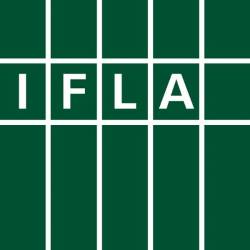
IFLA Trend Report 2021 Update Released
January 12, 2022
IFLA, the International Federation of Library Associations, has published a 2021 Update to its Trend Report.
First released in 2013, the IFLA Trend Report Update identifies trends and forces that may shape the world around us in the years to come, be they political, economic, technological, cultural or environmental.
In June and July of 2021, IFLA surveyed emerging library leaders to identify the trends that they thought would shape the library field over the coming ten years, and how. These ideas were analysed by IFLA staff with 20 trends – some complementary, some contradictory – identified.
20 Trends
1. Tough times ahead: A slow recovery from COVID will put pressure on all forms of public spending, requiring libraries to intensify advocacy efforts
2. Virtual is here to stay: People continue to prefer to access library services remotely, putting into question the value of spaces and physical offerings.
3. The comeback of physical spaces: People rediscover the value of spaces that offer opportunities for meaningful exchange and discussion.
4. The rise of soft skills: At a time of rapid evolution in technologies, it becomes more and more important for librarians to be able to innovate and adapt to unpredictable situations.
5. Diversity gets taken seriously: A growing awareness of the existence and impacts of discrimination leads to a radical reform of our collections, services and practices.
6. An environmental reckoning: Climate change brings new threats to libraries and the communities they serve, forcing radical adaptation in order to avoid disaster.
7. A mobile popupation: With people ever more nomadic, the concept of a ‘local’ library becomes less relevant, and the need to provide joined-up services across borders rises.
8. The impatient user: Library users, in particular from younger generations, expect the most modern technologies and service, and risk turning away from libraries if they cannot find them there.
9. An analogue backlash: A new generation, traumatised by the stresses of constant social media connectivity, rediscovers physical resources – including books – as an escape.
10. Scale matters: The cost of providing full and modern services means that it is only possible for larger institutions to do so, leaving smaller ones behind.
11. Data domination: New uses and applications of data change our economic and social lives dramatically, making it more and more essential for people to become data literate in order to cope.
12. Search transformed: Artificial intelligence revolutionises the way in which we find information, making it possible to provide more and more accurate results for users.
13. Race to the extremes: Political debate becomes more polarised, making it more difficult to find consensus in politics and society alike, undermining the case for shared institutions.
14. Lifelong learners: There is no such thing as a job for life any more, meaning that more and more people need to retrain throughout life. Libraries intensify learning activities in response.
15. A single, global collection: With digitisation of resources and possibilities to work across institutions, it is no longer so relevant to talk about local collections, but rather access to universal resources.
16. The privatisation of knowledge: The use of technological tools, as well as slow reforms to copyright, mean that it is possible for private actors to restrict and control information, even at a granular level, obliging permissions and payments.
17. Qualifications matter: As the complexity of the information environment increases, the need for library workers to benefit from a high level of education also rises.
18. Information literacy recognised: Governments and others recognise fully the importance of information literacy as a long-term response to the rise of misinformation.
19. ‘Open’ raises questions about libraries’ unique selling point: With a growing share of scientific information available freely, libraries are forced to adapt their role or lose their unique selling point (USP) and relevance.
20. Inequalities deepen: With technology creating new possibilities for those with access to it, the gap between them and those without grows, risking confining large shares of the population to poverty unless action is taken.
(Via IFLA)
Add a new comment